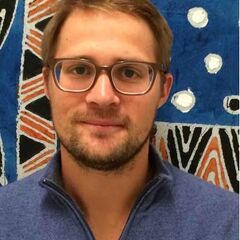Ryan Nehring

Ryan Nehring was a postdoctoral research fellow on the project from 2021–2022. In 2022 he moved to the International Food Policy Research Institute, where he is an associate research fellow.
Ryan’s academic work is mostly based in Latin America, with a focus on Brazil. He has published comparative research on the state-based implementation of food sovereignty in Latin America and Sub Saharan Africa. In Brazil, most of his research has centred on the knowledge politics and history of Brazil’s public research agency, the Brazilian Agricultural Research Corporation (Embrapa). This has resulted in an article in Geoforum and is the subject of his dissertation titled Techno-tropicalismo: Public Agricultural Research and the Brazilian Green Revolution. Some of Ryan’s research has also included collaboration with Embrapa researchers on an article that analyses the historical development of agricultural research institutions in Brazil and the U.S. His more recent work includes an article for the International Journal of Agricultural Sustainabilitythat critiques the claims of no-till agriculture as a sustainable model in the Brazilian Cerrado, and another article on the history of gendered labour in U.S. development assistance with rural extension and home economics in the state of Minas Gerais, Brazil.
He holds a Master’s in International Development Studies from St. Mary’s University (Canada) and a Master’s and PhD in Development Sociology from Cornell University, under supervision by Dr. Wendy Wolford. Prior to his academic career, Ryan served as a researcher for the United Nations Development Programme – International Policy Centre for Inclusive Growth in Brasilia, Brazil. Over the past eight years, he has continued to consult with development agencies on research related to food procurement policies and rural poverty reduction.
Click through for more on Ryan's post-doctoral projects, 'Brazil’s Living Seed Bank: Participatory Research and the Revitalisation of Underutilised Tropical Vegetables' and 'Seed Protectionism: Authoritarian Populism and the Future of the Global Gene Pool.'
